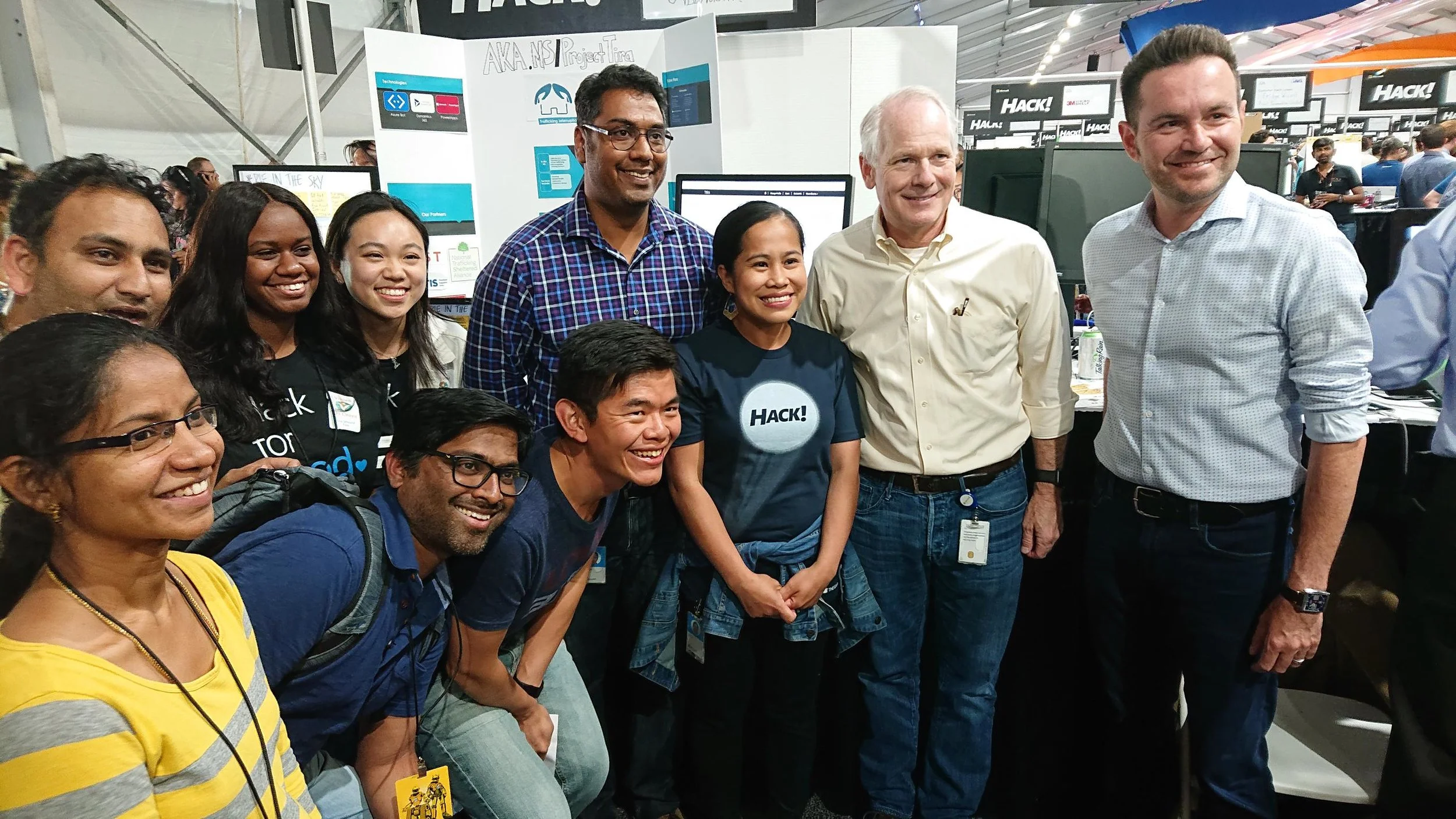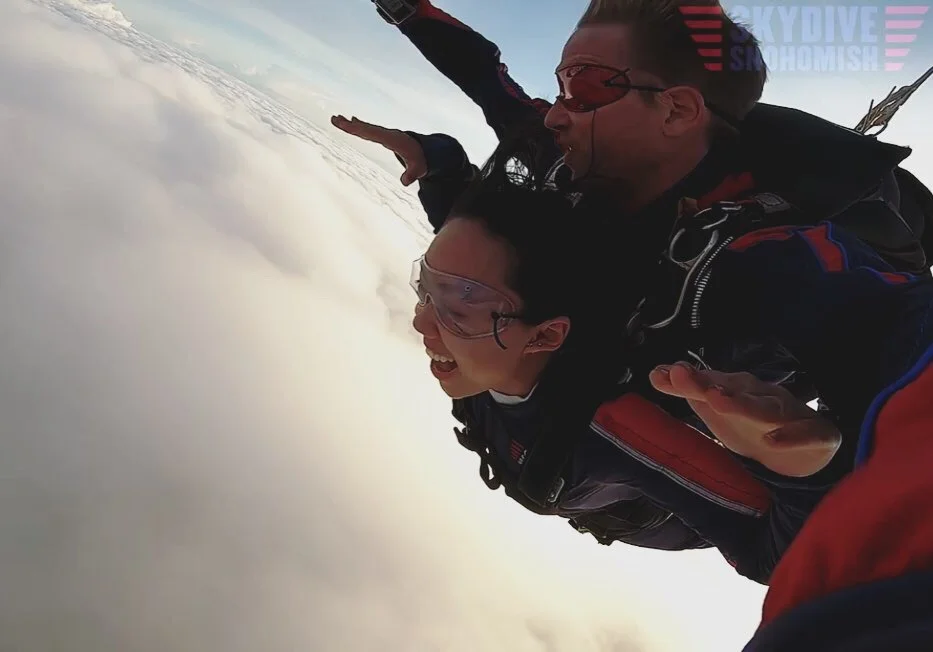
Internship at Microsoft
I spent Summer 2019 at Microsoft under the Global Advertising Business Team. I was an Operations PM Intern specifically on the Network Performance team, which does business analytics for Microsoft’s advertising products.
In short, I had an unforgettable summer, during which I learned how to ask and answer important business questions with data, define and defend KPIs that I created, and tell a story with data. I also had the incredible opportunity to learn from employees across Microsoft, experience the OneMicrosoft culture, and leave a lasting impact on my product and team.

Entering the office on my first day with excitement, I had expected that “Bing ads” meant I’d be working on search ads. Later, I learned that my product for the summer would be Microsoft’s native advertising solution, called the Microsoft Audience Network (MSAN). As the product is new, I was excited about the project I’d be working on.
The first few weeks, I was overwhelmed (in a good way) with all that I had to learn about Bing ads, audience targeting, MSAN, and honestly, Microsoft overall. I spent a lot of time learning the ins-and-outs of MSAN, as well as researching the native ad industry, which is definitely expanding in the next few years.
As I became comfortable with the space and product I’d be working with, I began to use Power BI to learn about the metrics/KPIs we tracked and investigate the reasons behind certain metrics shifting over the past weeks or months. I also started speaking with the vendor data team that I’d work with for my summer project.
Right off the bat, my manager emphasized that I’d get to take ownership of the business questions I wanted to answer, what data I needed to answer these questions, and how I did the analysis to offer insights and recommendations. At first, I was a little daunted by the ownership I had, but I gained confidence throughout the summer as I became more familiar with my work. I was also aided by the two courses I had taken at Wharton that directly prepared me for my internship: Analytics in the Digital Economy (OIDD 245 - you can see my 2 data projects for the class on this website) and Digital Marketing (MKTG 270).

As I was ramping up on my project, I started to actively participate in Microsoft events, meet fellow interns working on similarly impactful projects, and chat with many full-time employees to learn about their work. I especially appreciated chatting with everyone on the Network Performance team, who were excited to provide any help to ensure a successful internship project.
In addition to understanding the native ad landscape, the two main components of my project were:
1. Understanding what the lift in performance might be for audience targeting products on MSAN
2. Identifying opportunities to grow demand (advertisers) on MSAN within industry verticals based on supply (users)
As senior leadership has asked these questions, I was even more determined to deliver useful analyses at the end of the summer.
For the first component of my project, I recognized that my work would directly be used by our Product Marketing and Sales teams to provide messaging and recommendations to advertisers on audience targeting. Furthermore, I also recognized how conducting this lift analysis would be a bit challenging: there definitely are benefits to using specific audience targeting products, but how would I be able to show that? Over a couple weeks, it took a couple iterations of analysis to finally get the right cut of data that would tell the story of the value of audience targeting products. I learned that this process could be tedious but that getting to the “right” analysis is crucial to enabling sales and overall to strengthening the value proposition of MSAN Audience Targeting.

A little after I started with the first component of my project, I jumped into the second, and larger, component of my project. (Jumping ahead a little, as I was well on my way in both projects, I attended Microsoft’s OneWeek Hackathon, where I met Kurt Delbene - see above photo!)
In this component of my project, I was truly entering uncharted territories, as native ads are quite different from search ads - there wasn’t a set-in-stone way to analyze data for new opportunities on MSAN. Through an iterative process, I asked for certain data and metrics, defined which metrics were really KPIs, analyzed the data through Power BI, and continued to ask more questions that may or may not have been answerable from the data (if not, I’d try to ask for more data).
I learned so much through this process: I learned about my tendency for analysis paralysis (being so in the details, having so many questions) and made great improvements to focus on answering key questions that would create a strong story for what I was finding. I learned about the unexpected lags that might happen when working with a vendor team and the clear and convincing communication needed (1) for me to understand the work they did and (2) for them to understand what data and analysis I need from them. I learned about how to best visualize data and (again) determining what metrics really mattered and why - I am defending my analysis!
All in all, I found my project(s) to be extremely rewarding - it was the first time I was encountering some of these challenges, but I was able to learn quickly (especially with the support of my manager) and push myself to produce meaningful insights. Throughout my final presentation, senior leadership excitedly discussed the applications and action items in response to the analysis I was presenting. I was so happy that they’d use my work moving forward.

Reflecting back now, I felt like my summer flew by! (I flew too!) To say the least, I am extremely grateful to have had a summer of growth at Microsoft.